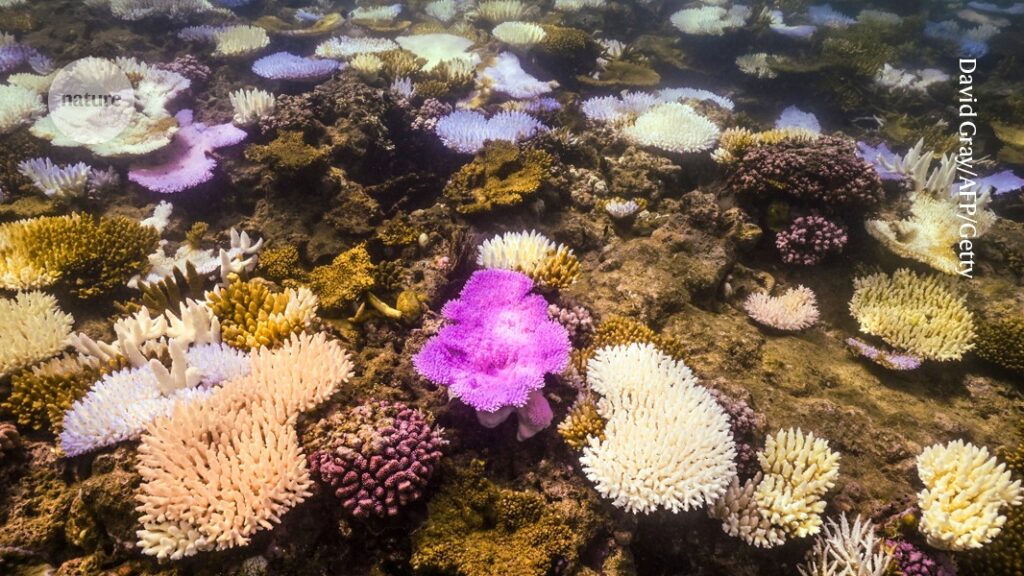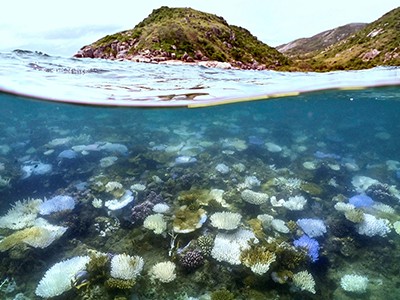Vast expanses of coral in Australia’s Great Barrier Reef have died as a result of extremely high water temperatures.Credit: David Gray/AFP/Getty
Surging temperatures worldwide have pushed coral reef ecosystems into a state of widespread decline, marking the first time the planet has reached a climate ‘tipping point’, researchers announced today.
They also say that without rapid action to curb greenhouse-gas emissions, other systems on Earth will also soon reach planetary tipping points, thresholds for profound changes that cannot be rolled back.
“We can no longer talk about tipping points as a future risk,” says Steve Smith, a social scientist at the University of Exeter, UK, and a lead author on a report released today about how close Earth is to reaching roughly 20 planetary tipping points. “This is our new reality.”
Temperature spike
Led by Smith and other scientists at the University of Exeter, the report assesses the risk of breaching tipping points such as ice-sheet collapse, rising seas and dieback of the Amazon rainforest. The report also discusses progress towards various positive tipping points focused on social and economic change, such as the adoption of clean energy.
The group’s first such assessment, released less than two years ago, raised alarms but did not officially declare that any climate tipping points had been reached. In the past few years, however, global temperatures have surged, sparking concerns among some scientists that global warming is accelerating and could lead to even more widespread impacts in the coming decades than the changes that have already been recorded.
Australia’s Great Barrier Reef is ‘transforming’ because of repeated coral bleaching
The impact on coral reefs in the past two years has been particularly severe, pushing these ecosystems to their tipping point, the researchers say.The warming waters have caused corals across the globe to bleach, a process that occurs when corals expel the symbiotic algae that provide them with nutrients, oxygen and vibrant colours. The fourth global bleaching event in the past few decades began in January 2023, and researchers estimate that it has affected more than 84% of the planet’s coral ecosystems .
The initial tipping point report talked about large-scale threats to corals in the future tense, but the latest global bleaching event has made it clear that the crisis is now, says Michael Studivan, a coral ecologist at the University of Miami in Florida. “We are there,” Studivan says, suggesting that coral reefs are facing massive disturbances that are both more severe and more frequent. “The period of recovery typically happens in between disturbance events is not really happening anymore, and that’s kind of the big problem for corals.”


